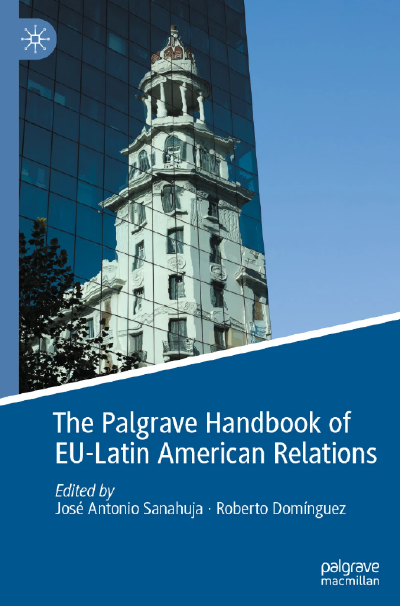Dans la même rubrique
-
Partager cette page
The European Parliament and Latin America: Agreeing to Disagree
Luciano, B.T. (2025). The European Parliament and Latin America: Agreeing to Disagree. In: Sanahuja, J.A., Domínguez, R. (eds) The Palgrave Handbook of EU-Latin American Relations. Palgrave Macmillan, Cham. https://doi.org/10.1007/978-3-031-80216-4_7
Literature on the EU’s relations with Latin American region often focuses on the role of the EU executives in this relationship, being either the European Commission, the Council of the European Union, or specific EU Member States (see Serban; Garcia and Gomez-Arana in this Handbook). This chapter, in turn, examines the Euro-Latin American inter-parliamentary relations, in particular the engagement of the European Parliament (EP) with the Latin American and the Caribbean (LAC) parliamentarians, grounded in previous literature on EU-LAC inter-regional and inter-parliamentary relations and parliamentary documentation from the EP’s online database and Latin American repositories. After introducing the phenomenon of increasing involvement of the EP in international affairs (state of the art), it identif ies the political and technical actors involved and the channels for EP-Latin American relations, unveiling some of the main motivations and narratives of European and LAC parliamentary actors to engage in inter-regional relations (demand side). Afterward, it highlights the key forms of interaction employed by Members of the European Parliament to dialogue with the region, with particular emphasis on Parliamentary Delegations for relations with LAC third countries/regions and the Euro-Latin American Parliamentary Assembly (Eurolat), as well as the use of parliamentary resolutions and veto threats to shape EU policy toward the region.
This chapter discusses whether EU-LAC inter-parliamentary relations over the past years have succeeded in—on the supply side—increasing socialization and norms-sharing dynamics of parliamentary actors from the two regions, aiming at developing collective positions over global and interregional pressing challenges. At the same time, it emphasizes that on some occasions inter-parliamentary encounters such as those within Eurolat enabled parliamentarians to voice divergent opinions regarding certain inter-regional issues. Finally, it reflects upon the role and the potential of Eurolat to enhance the levels of legitimacy, effectiveness, and durability of overall EU-LAC relations, by assessing whether EP’s engagement with the region to some extent has contributed to overcoming the asymmetric terms of the historical EU-LAC inter-regional relations.
This chapter discusses whether EU-LAC inter-parliamentary relations over the past years have succeeded in—on the supply side—increasing socialization and norms-sharing dynamics of parliamentary actors from the two regions, aiming at developing collective positions over global and interregional pressing challenges. At the same time, it emphasizes that on some occasions inter-parliamentary encounters such as those within Eurolat enabled parliamentarians to voice divergent opinions regarding certain inter-regional issues. Finally, it reflects upon the role and the potential of Eurolat to enhance the levels of legitimacy, effectiveness, and durability of overall EU-LAC relations, by assessing whether EP’s engagement with the region to some extent has contributed to overcoming the asymmetric terms of the historical EU-LAC inter-regional relations.
Mis à jour le 2 avril 2025

